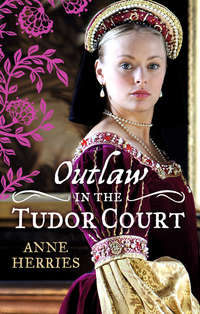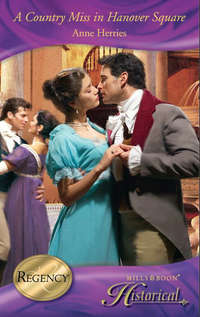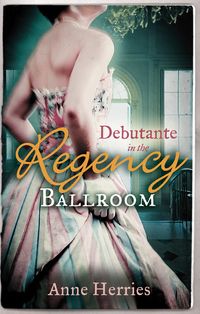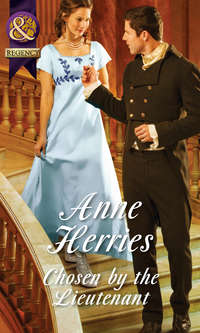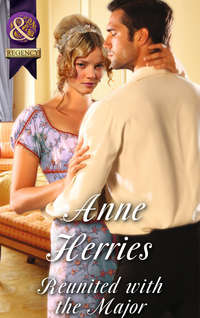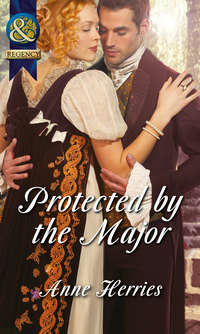
Полная версия
Ransom Bride
‘Do you think this merchant of whom you spoke may have news?’
‘I pray it may be so. Suleiman Bakhar knows him well. He told me that Lorenzo Santorini has helped several slaves who have managed to escape from their masters. He sometimes buys them in the slave markets of Algiers or takes prisoners from the pirate galleys he sinks, and he will ransom a Corsair captain for galley slaves. I think he exchanged ten slaves for one such man just a few months back. He gives them the chance to work for him, and sometimes he will return them to their families. He might ask for a ransom for his trouble, but for myself I would gladly pay it.’
‘He sounds a man to be reckoned with?’
‘Indeed, he is. Suleiman admires him—they have a mutual respect, I believe, though Santorini hath no love for Corsairs or the Turks. Indeed, I have heard that he hates them.’
‘Yet Suleiman Bakhar calls him friend.’
‘Suleiman is a man of enlightenment, as you know. He has only one wife, Eleanor, though his religion allows him to have several, and he adores her. They travel together and though she adopts Muslim dress when in his country, she wears English garb in ours. Suleiman says that if anyone can find Dickon, it is Santorini.’
Sir John nodded. ‘And that is the true reason you want Kathryn to accompany you, isn’t it? You believe that Dickon will need both you and her if he is found.’
‘What will he be like if he has survived?’ Lord Mountfitchet said, his face grey with grief. The abduction of his son had haunted him these many years, giving him no peace. ‘He is bound to have suffered terribly. He will need nursing and care if we are to teach him how to live again.’
‘Yes, I fear you are right,’ Sir John agreed. ‘Perhaps Kathryn is the only one who might help him. They were so close as children.’
‘I have not told her my thoughts on this matter,’ Charles Mountfitchet said. ‘It would make her feel that she ought to accompany us—but I would have her come only if she wishes it.’
‘Yes, it must be as she wishes,’ Sir John said. ‘I would not have it otherwise. Yet if she should want to marry…’
‘I shall write to you at once,’ his friend promised. ‘But Mary will have a care to her. We shall not allow some ruthless fortune hunter to snare her.’
‘Her fortune is adequate, but not huge,’ Sir John said. ‘I have my son to think of and, as you said, Catholics are not given the chance to rise these days. Philip will not be given a post at court as I was when Mary was Queen.’
‘That is why you do well to join me in my venture,’ Lord Mountfitchet said. ‘We may trade where we will, for the world is bigger than this country of ours.’
‘Yes, I believe you are right,’ Sir John said, ‘though for myself I would be loath to leave it as you intend.’
‘Perhaps I might have thought as you if…’ Lord Mountfitchet sighed and shook his head. ‘It does no good to repine. If Santorini can give me no hope, then I may accept that I shall never see my son again.’
Kathryn looked at herself in her small hand mirror. It had come all the way from Venice and had once belonged to her mother. She touched the smooth silver handle with her fingertips. The merchants of Venice were known for the quality of their wares, and it was from that city that the beautiful glass posset set, which her mother had treasured, had come.
It would be a great adventure to go with Lady Mary and Lord Mountfitchet. She had never expected to leave the shores of her homeland, for her father was not a great traveller. Yet she had read the histories in his library, those rare and valuable books and bound manuscripts that she was privileged to share, and her mind was open to new things. And of course Venice was renowned as a centre of publishing, particularly of the poets and of great histories. She thought that she would like to see new countries, new places—and there was always the possibility that they might discover something concerning Dickon’s whereabouts.
Her hair was hanging loose about her shoulders, a dark, shining red mass of waves that gleamed with fire when it caught the candlelight. She got up and went over to the window, gazing out into the darkness. She could see very little for there were no stars to light the sky that night. Her father had spoken of her finding someone she might wish to marry—but how could she ever do that when her heart belonged to Dickon? She had given him her promise as a girl and he had taken his knife and cut her initial into the back of his wrist. She had cried out in alarm, for it had bled a lot, and had given him a lace kerchief to bind it.
‘Does it hurt very much?’ she had asked and he had laughed, his eyes bold and daring.
‘It is nothing, for I know that this blood binds you to me for ever.’
She had kissed the wound then, tasting his blood, and had known that she would always love him. She would resist any attempts to marry her to a man she did not love. She would behave modestly when travelling and listen to Lady Mary’s advice, but she would not let them marry her to a man she did not respect or feel some affection for. Perhaps one day she would feel inside her that Dickon was dead. If that happened, she might consider marriage. If not…
Her thoughts seemed to come up against a blank wall, for she did not know what she would do if Dickon never returned to her. There was no alternative to marriage for a woman of her class, unless she wished to retire to a convent. Women married or became nuns, unless their male relatives had a use for them. Perhaps Philip would accept her as a dependent in his household if she grew old and past the age of being a wife.
It was a sad prospect, but what else was there for her? Laying down her mirror, Kathryn went to her bed, which was a heavy box base with four posts and a carved tester overhead. A handsome thing, it was piled high with soft mattresses filled with goose feathers, for the slats were wooden and hard. Slipping beneath the luxury of silken quilts, she wondered what life was like on board ship.
Yet she would put up with any discomfort if, at the end of the journey, she could find the man she loved.
The momentum was gathering, Lorenzo thought as he left the meeting to which he had been summoned. There had been talk of forming an alliance to fight a campaign against the Turks for a long time, but now, at last, it looked as though it might actually happen later that year. Pope Pius V had formed the Holy League with Spain and Venice, and it was hoped that others would bring their ships to help fight the menace that had haunted the Mediterranean seas and the Messina Strait for so long. Many had thought the talking would simply go on and on, and negotiations would probably continue for a while. However, after these latest threats against Cyprus and Rome itself, it seemed that His Holiness was determined to strike against the enemy that had for so long threatened the nations of Christendom.
Leaving the palace, Lorenzo was thoughtful as he walked, his mind dwelling not on the conference that he had attended, but on a letter that had reached him shortly before he left Venice. It was from an Englishman with whom he had done business in the past, telling him that he was coming to Venice and asking if he could help to trace a youth who had been abducted from the shores of his homeland over ten years previously.
Lorenzo frowned, for it was a thankless task. He knew as well as any man how unlikely it was that the youth had survived.
He would, of course, do what he could to help Lord Mountfitchet, for although they had never met he had heard good things of the gentleman. His father, Antonio Santorini, had visited England some years previously and had spoken of meeting Lord Mountfitchet, saying that he was both honest and decent. Therefore, Lorenzo would help him, but to trace a man who had been taken by Corsairs so long ago…
Lorenzo’s instincts remained alert even while his mind wrestled with his problems, and he was aware that he was being followed. So when the attack was made, he was ready for it, drawing his sword as he turned to meet the three ruffians who rushed upon him out of the darkness.
‘Come, my friends,’ he invited with a cold smile that only served to intensify the ice of his eyes. ‘Would you have my purse? Come, take it if you can…’
One of the three, bolder than the others, took him at his word. They clashed swords, contesting the fight fiercely, but the rogue was no match for a master swordsman and called for help from his comrades. The other two came at Lorenzo warily, for they had seen that he was no easy mark. Outnumbered three to one, he held his own for some minutes, slashing to left and right as each one attacked in turn, whirling out of reach, retreating, then advancing as he fought with the skill and ferocity his years as master of a war galley had brought him. Even so, the odds were against him and it might have gone ill with him in the end had not a newcomer joined in the fray, bringing his own skill and courage to Lorenzo’s assistance.
Lorenzo’s sword found its mark, disabling one of the three. Finding that the odds were now even and that they were being driven back, the other two rogues broke and ran, whilst the wounded fellow leaned against a wall, clutching his arm, blood oozing through his fingers.
Lorenzo had sheathed his sword when the others ran, but the stranger who had come to his aid still held his, regarding the would-be assassin speculatively.
‘Shall we kill him?’ he asked of Lorenzo. ‘’Tis what the dog deserves—or do you wish to question him?’
‘His purpose was to rob me,’ Lorenzo answered with a careless shrug. ‘Let him go to join his companions—unless he would prefer a quick death?’ His hand moved to his sword hilt suggestively.
The man gave a squeak of fear, suddenly finding the strength to run in the wake of his comrades. A harsh laugh escaped the stranger, who turned to Lorenzo.
‘You are merciful, sir. I think he would have killed you if he could.’
‘I do not doubt it.’ Lorenzo smiled. ‘I thank you for your help, sir. I am—’
‘I know you, Signor Santorini,’ the stranger said before he could continue. ‘I am Pablo Dominicus and you were pointed out to me at the conference we both attended. I followed you because I wish to speak with you.’
‘Then good fortune followed me this night,’ Lorenzo said. ‘Shall we find an inn where we can sit and talk, if you have some business you would discuss?’
‘My business is twofold,’ Pablo Dominicus said. ‘I am on the one hand an emissary from His Holiness the Pope—and on the other I am a man seeking revenge. I believe we have a common enemy.’
‘Indeed?’ Lorenzo’s eyes narrowed. It seemed the stranger was a Spaniard. He had no great love of the Spanish, for the Inquisition was a fearful thing, practised by many in the name of Catholicism, but stronger and more powerful in Spain than most countries. And it was known that Spain resented Venice for its independence, and considered that some of its inhabitants would benefit from the attention of the Inquisition. There were men who served in Lorenzo’s galleys who had known what it was to suffer torture and beatings at the hands of the fanatics who ruled the religious order. Yet there was only polite inquiry in Lorenzo’s voice as he said, ‘Pray tell me more, señor. I would know how I may serve you?’
‘Let us find somewhere we can be private, Signor Santorini. I have a request from His Holiness, for your name is well known to him—and another of my own.’
‘There is an inn I know in the next street,’ Lorenzo said. ‘If your business is secret we can take a private chamber and be sure that we are not overheard.’
Lorenzo drank sparingly of the rich red wine Dominicus had ordered, listening to the request being made of him. In the darkness of the streets he had been unable to see the face of Don Pablo clearly, but now he saw that he was a man in his middle years. Heavily built, he wore a small, dark pointed beard, his hair short and thinning at the temples. And there was a faint unease in his manner that Lorenzo found interesting.
‘His Holiness requests that you pledge your support to our cause,’ Don Pablo said. ‘Your galleys are some of the finest and your men are strong and brave, and, I am told, loyal to you. If you join us in the League, others will surely follow.’
‘It was my intention to make my offer once I had consulted with my captains,’ Lorenzo said, his eyes thoughtful as he studied the other man. Why was it that he did not quite believe him as honest as he appeared? ‘I shall join your cause for it is also mine, but the men who serve me are free to choose. I believe most will follow me, for they have cause to hate the Turks and their allies.’ Some hated the Spanish just as much, but he would not say that. ‘Now, perhaps you would care to tell me the true reason you chose to follow me this evening?’
Don Pablo smiled. ‘They told me you were clever. I shall not insult your intelligence by holding to the claim that I am here on the Pope’s behalf, for that might have been left to others, though I know His Holiness intends to approach you. I followed you because I believe you have good cause to hate Rachid—he they call the Feared One. I have heard it said that you hate him and would see him dead if it were possible.’
Lorenzo was silent for a moment, then, ‘What has Rachid done to you?’
‘Three months ago his galleys attacked and captured one of my merchant ships,’ Don Pablo said and his fist clenched on the table. It was clear that he was suffering some deep emotion. ‘That cost me a great deal of money—and one of the men he killed was my son-in-law.’
‘I am sorry for your loss, sir.’
‘My daughter and grandchildren are living in Cyprus,’ Don Pablo went on and his hand shook as if he were in the grip of some strong emotion. ‘Immacula wants to return to Spain with her children. I would send ships to fetch her myself—but I have suffered other losses of late. Those accursed English privateers, as they call themselves, have been harrying my ships as they return from the New World…’
‘You are asking me to bring your daughter to you?’ Lorenzo’s brows arched as he studied the other’s face.
‘I am willing to pay for your time, of course.’ Don Pablo’s eyes dropped before Lorenzo’s intense gaze.
‘My galleys are meant for war. They are not suitable for a woman and children. I think you must look elsewhere for your escort, Señor Dominicus.’
‘You mistake me, signor. Immacula will naturally travel in our own ship. I but ask for an escort to see her safely to Spain.’
‘You want my galleys to escort your ship?’ Lorenzo nodded, his gaze narrowing as he studied the Spaniard. Something was not right about this. His instincts were telling him to be wary, and they were seldom wrong. ‘My men work for me. They are not for hire to others.’
‘Surely they would do as you bid them?’ Don Pablo’s eyes were dark with suppressed anger and something more—was it fear? Lorenzo could not decide, but sensed that there was more to this than he had been told. ‘I believed you commanded. Do not tell me that those who serve you dictate what you do, for I should not believe it!’
Lorenzo’s mouth curved in a strange, cold smile that sent a shiver down the spine of his companion. ‘Forgive me if I speak plainly, Don Pablo. Some of my men have suffered at the hands of the Spanish Inquisition. They would spit in your face rather than fight for you.’
Don Pablo’s face suffused with anger, his neck a dark red colour. He started to his feet as if he would strike out in anger. ‘You refuse me? I had heard that you were a man of business. Surely my gold is as good as the next man’s?’
‘For myself I would take your money,’ Lorenzo said, his face a stone mask that revealed nothing of his thoughts, ‘but I cannot expect my men to fight for a Spaniard.’ He stood up and inclined his head. ‘I am sorry, but I believe you may find others willing to assist you.’
‘You may name your own price.’ Don Pablo flung the words after him, seeming desperate. ‘I beg you to help me, signor.’
‘My answer remains the same, Don Pablo.’ Lorenzo turned to look at him, his eyes cold and resolute. He was certain now that his instincts had been right; this was not a simple matter of business. ‘When you decide to tell me the truth, I may reconsider, sir—but until then, farewell.’
A look of fear mixed with horror came to the Spaniard’s eyes and for a moment he seemed as if he would speak, but he shook his head and in another moment Lorenzo closed the door behind him.
His instincts had served him well as always. He believed that the attack on him had been planned, not random, a ploy to make him grateful to Dominicus—to make him accept the commission that was offered in a sense of friendship and trust. Lorenzo had learned in a hard school that few men were to be trusted.
There was more behind this than met the eye, and it smelled wrong. If his enemies had set a trap, it would need to be baited more cleverly than this.
Chapter Two
So this was Venice! Kathryn looked about her eagerly as their ship weighed anchor in the great lagoon. They were too far out to see the shoreline clearly, but the grand palaces of the rich merchant princes lay shimmering in the sunshine, the waters of the lagoon lapping over the steps at which brightly coloured gondolas were moored.
‘What do you think of Venice, my dear?’ Lady Mary asked as she came to stand beside the girl. ‘Is it what you expected?’
‘It is beautiful. I did not know what to expect. I have seen a pastel of the Grand Canal and its palaces, ma’am, but reality far exceeds the artist’s imagination. Those palaces seem almost to be floating.’
Lady Mary laughed. She was a stout, good-tempered lady, who had been pretty in her youth, and her smile was warm with affection, for she had grown fond of Kathryn on their journey. They had been together some months and it was now the spring of 1570. In England it would still be very cool, but here it was much warmer as the sun turned the water to a sparkling blue.
‘Yes, it has a magical appeal, does it not? My late husband was an enthusiastic traveller in his youth. He told me of his visit to Venice. We must visit St Mark’s Square and gaze upon the Doge’s palace while your uncle is at his business, Kathryn.’
It had been decided that she should look upon her kind friends as Aunt Mary and Uncle Charles.
‘We may not be blood related,’ Charles Mountfitchet had told her at the beginning of their journey, as they set out to London to meet his sister. ‘But we shall be together en famille for some months and must be comfortable with one another.’
Kathryn had been very willing to accept him as an honorary uncle, for she had long felt close to him. They had comforted each other throughout the years since Dickon’s abduction and she was fonder of him than anyone other than her father.
‘Oh, I want to see everything,’ she said now. Her eyes had a glow of excitement that had been missing for a long time. The journey had suited her for she had not been seasick, as Lady Mary had for the first few days of their voyage. ‘And you will feel so much better to be on land again, Aunt.’
‘Indeed, I shall. I might wish to go no further,’ Lady Mary said with some feeling. ‘I fear that this is but a temporary respite, for my brother wishes to settle in Cyprus and so we must put to sea once more.’
‘He plans to grow his own wine,’ Kathryn said. ‘But who knows? His plans may change.’
‘You are thinking of Richard, of course.’ Lady Mary frowned. ‘I know that both you and my brother hope for a miracle, my dear, but I fear you will be sadly disappointed.’
‘But it does happen,’ Kathryn said. ‘Suleiman Bakhar told my uncle that sometimes slaves may be either rescued or bought from their masters. If Dickon was sold as a house slave, it is possible that we might be able to find him and purchase his bond.’
‘My brother has tried to find his son,’ Lady Mary said, sighing deeply. She did not believe their search would come to anything and feared that they merely brought more pain on themselves. ‘For years he petitioned men of influence to help him in his search, to no avail. I believe that Richard is dead. I am sorry, but I think that some trace of him would have come to light before this if he were alive.’
‘I know what you say is sensible,’ Kathryn said, her eyes bright with the fervour of her belief. ‘But I feel that he lives. Here inside me.’ She pressed her hands to her breast. ‘I cannot explain it, for it must sound foolish, but if Dickon had died—a part of me would have died too.’
Lady Mary shook her head, but said no more on the subject. In her own opinion Kathryn was living on false hope. Even if her nephew had somehow survived, he would not be the same. Any man who had endured years of slavery must have changed; he might be hard and bitter or broken in spirit. Either way, Kathryn was doomed to grief. It might be better if no trace of Richard was ever found, for surely in time she would learn to love someone else.
The girl had blossomed under her care. While in London they had visited the silk merchants, buying materials to make into gowns suitable for a warmer climate. Lady Mary had been pleased to take the girl about, introducing her to her friends, giving her a taste of what life could be, and the change in Kathryn had pleased her. She smiled more and her laughter was warm, infectious, though there was a stubborn streak beneath her pretty manners. Yet she had thrown off the air of sadness that had haunted her lovely face and was revealed as a charming, intelligent girl.
Lady Mary had great hopes of finding a suitable husband for her charge before the time came for Kathryn to return home.
‘I believe this is the gondola come to take us ashore,’ Kathryn said as she turned to her companion. ‘We are to be taken to the house Uncle Charles has hired for our use, but he is to meet that friend of his immediately. Signor Santorini, I believe he called him.’
‘He hopes for news, I dare say.’ Lady Mary smothered a sigh. ‘Well, at least it will give us time to settle in. Men are always in the way at such times.’
Kathryn smiled, but made no answer. Given a free choice she would have wished to go with her uncle to the meeting, but she had not been asked. She would be of much more help to Lady Mary—but she would be impatient for news.
‘I trust your journey was a good one, sir?’ Lorenzo rose to meet his visitor. He had chosen to receive him in one of the smaller salons to the right of the grand entrance hall, for it was more welcoming and more conducive to privacy. ‘I am pleased to meet you at last, Lord Mountfitchet.’
His words were spoken frankly, his eyes going over the older man and finding that he was drawn to him in a way that was not often the case with strangers. He saw suffering in the other’s face, the greying at his temples and in his beard; it was a face grown old before its time. It was the face of a man who had known terrible grief. For some reason Lorenzo was saddened by his grief, though the man was a stranger to him.
‘Come, sir, will you not take a glass of wine with me? Pray be seated.’ He indicated the principal chair, which was of a kind not common in England, the seat well padded, and the low back comfortable and shaped to accommodate a man’s bulk. ‘I dare say you are weary from your journey?’
‘Indeed, a glass of wine would be welcome, Signor Santorini,’ Charles Mountfitchet said as he took his seat. ‘My sister and niece wanted me to accompany them to our lodgings and rest for a day or so, but I was impatient to meet you.’
‘Unfortunately, I have no definite news of your son,’ Lorenzo said. ‘However, there is a man I would have you meet, sir. He was rescued from a Corsair galley two months ago, but has been too ill to question. We believe that he may be English, though as yet he has hardly spoken a word.’
‘What does he look like?’ Charles asked barely able to contain his excitement. ‘What colour are his hair and eyes?’
‘What colour hair did your son have? Were there any distinguishing features?’


